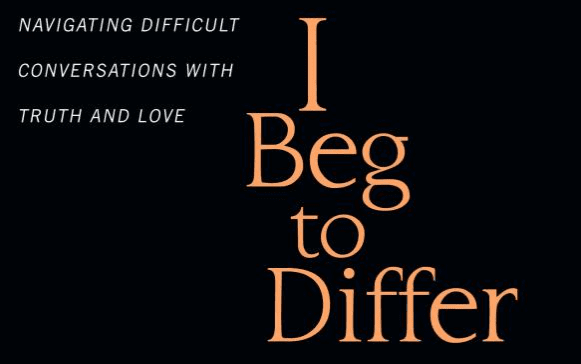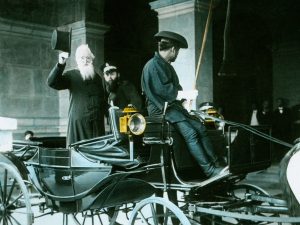At a point in time when civility both within and outside of the community of faith appears at an arguably all-time low, the need for resources to assist humanity in reestablishing a sense of unity within our divided world is a welcome addition. I Beg to Differ: Navigating Difficult Conversations With Truth And Love (InterVarsity Press, 2014) by Timothy Muehlhoof is not a book about conflict management. It provides solutions to improve communication between those who have severely differing world views.
It’s hard to read the New Testament and come away with anything other than a call to unity. That unity may be between a person and God, within a person’s faith community or with someone who disagrees from outside your faith community. When it’s all said and done, the New Testament calls for civility. Muehlhoof presents a relatively straight-forward communication tool when folks find themselves on differing sides. Whether a simple conflict or something more significant, all too often the sides do not come to any resolution.
Muehlhoof’s work offers a both thoughtful and practical faith-based guide. Based on the author’s years of personal experience and development, I Beg to Differ provides insightful strategies in a readable style. Although summary points and questions are provided at the end of each chapter, the reader should not neglect reading the text as Muehlhoof provides a cross section of illustrations and case studies helpful in teasing out the four basic principles in this book.
The chapter on spiritual disciplines and the role they play in the process of conversation provides the person of faith with the key to Muehlhoof’s strategies. He weaved into his book the place of the individual’s spirituality and the pivotal role it plays in successful communication. Many books of this type offer similar principles, but few are as clearly and concisely written or as helpful in the approach.
Three case studies put his theory into practice. The examination of marital conflict, work issues, and issues with teens offer three reasonably common scenarios with practical application. Peaceful outcomes to differences of opinion are possible, and are attainable with a little work and attention to communication skills. The greatest importance provided by Muehlhoff’s work is the hope it provides for tangible outcomes.
Great communication brings with it authentic relationships and unity. If these things are our goals, Muehlhoff is more than worth the read and application.












